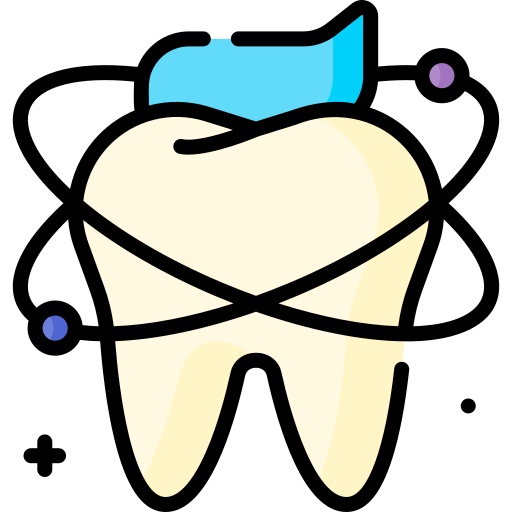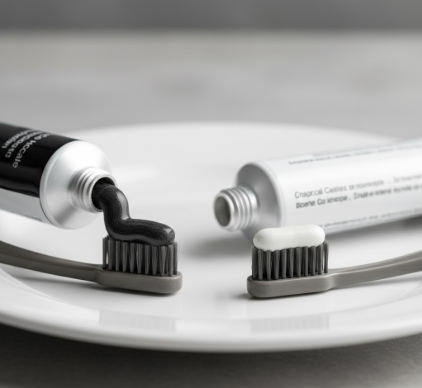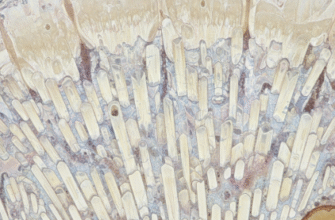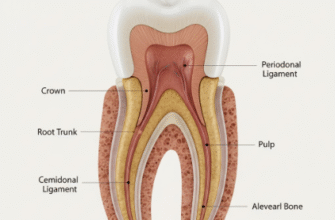Walk down any health and beauty aisle, or scroll through your social media feed, and you’re bound to encounter it: charcoal toothpaste. Packaged in sleek, often black tubes, it promises a dazzlingly white smile and a host of other oral health benefits. It’s become a major trend, but the big question on many people’s minds is: is charcoal toothpaste really better than the traditional stuff we’ve been using for decades?
The Allure of Activated Charcoal
So, what’s the deal with charcoal in toothpaste anyway? We’re not talking about the briquettes you use for a barbecue. The star ingredient is
activated charcoal, a fine black powder made from materials like wood, coconut shells, or peat. The activation process involves heating these materials to very high temperatures, which creates a highly porous surface. It’s this porous nature that gives activated charcoal its famed adsorption properties – meaning it can bind other substances to its surface.
Historically, activated charcoal has been used in medical settings, primarily for treating certain types of poisoning and overdoses by adsorbing toxins in the stomach. The leap to toothpaste seems to hinge on this “detoxifying” and “adsorbing” capability. Proponents suggest that when used in toothpaste, activated charcoal can:
- Whiten teeth: This is by far the most popular claim. The idea is that the charcoal particles lift surface stains from things like coffee, tea, red wine, and tobacco.
- Remove impurities and toxins: Drawing on its medical uses, some believe it can “detoxify” the mouth.
- Freshen breath: By adsorbing odor-causing compounds, it’s claimed to lead to fresher breath.
- Be a natural alternative: Many charcoal toothpastes are marketed as being free from artificial colors, sweeteners, and sometimes fluoride, appealing to those seeking more “natural” products.
A Closer Look at the Whitening Claims
The promise of a brighter smile is incredibly appealing, and it’s the main driver behind charcoal toothpaste’s popularity. So, does it work? Well, it’s complicated. Activated charcoal
is abrasive. This means it can physically scrub away extrinsic stains – those surface-level discolorations on your enamel. If your teeth are stained from coffee or tea, you might see some initial brightening effect simply because the surface layer of staining is being removed.
However, this abrasiveness is a double-edged sword. While it might remove some surface stains, it also has the potential to wear down your tooth enamel over time. Enamel is the hard, protective outer layer of your teeth, and once it’s gone, it doesn’t grow back. Thinner enamel can lead to increased tooth sensitivity and can actually make your teeth appear more yellow, as the underlying dentin (which is naturally more yellow) becomes more visible. So, any short-term whitening could potentially come at a long-term cost to your dental health.
Furthermore, charcoal toothpaste typically only works on surface stains. It doesn’t change the intrinsic color of your teeth, which is determined by the dentin. For deeper discoloration or a truly whiter shade, professional whitening treatments or products with chemical bleaching agents like hydrogen peroxide or carbamide peroxide are usually required, and these work in a very different way than abrasive charcoal.
It is important to understand that many charcoal toothpastes do not contain fluoride, an essential mineral for strengthening enamel and preventing tooth decay. The abrasive quality of charcoal itself also raises concerns among dental professionals about potential long-term enamel erosion. Always consider these factors and consult your dentist before making charcoal toothpaste a regular part of your oral hygiene routine.
Potential Downsides and Concerns
Beyond the abrasiveness and its impact on enamel, there are other factors to consider before you jump on the charcoal bandwagon.
The Fluoride Factor
One of the most significant concerns raised by many dental professionals is the lack of fluoride in many charcoal toothpaste formulations. Fluoride is a well-researched and widely recommended ingredient that helps to remineralize enamel and prevent cavities. By opting for a fluoride-free charcoal toothpaste, you might be missing out on this crucial protective benefit. While some brands are starting to add fluoride to their charcoal products, many popular ones remain fluoride-free, often marketed as a “natural” feature.
Abrasiveness and Sensitivity
We’ve touched on this, but it bears repeating. The very property that might offer some surface stain removal – its grittiness – can be problematic. Different charcoal toothpastes will have varying levels of abrasiveness, and there isn’t always a standardized measure (like the Relative Dentin Abrasivity or RDA score) readily available for consumers to compare. Consistent use of a highly abrasive substance can lead to:
- Enamel erosion: Leading to weaker teeth.
- Increased tooth sensitivity: Especially to hot, cold, or sweet things.
- Gum recession: If brushed too harshly near the gumline.
Staining Dental Work
Ironically, while touted for whitening, some reports suggest that charcoal particles can accumulate in cracks or crevices in older teeth, or around dental restorations like fillings, veneers, or crowns, potentially causing gray or black staining that is difficult to remove. This is the opposite effect anyone is looking for!
Limited Long-Term Research
Charcoal toothpaste is a relatively recent trend in widespread oral care. As such, there isn’t a large body of long-term scientific research specifically on its effects on oral health when used daily over many years. Most of the evidence supporting its benefits tends to be anecdotal or based on its properties in other applications, not necessarily rigorous, peer-reviewed dental studies comparing it favorably against traditional fluoride toothpastes.
What About “Detoxifying”?
The idea of “detoxifying” the mouth is a vague claim. Your body, including your mouth, has its own natural detoxification systems (like saliva). While activated charcoal can adsorb substances, whether it provides a meaningful “detox” benefit in the context of daily tooth brushing, beyond what regular brushing and a healthy oral microbiome already achieve, is not clearly established by robust scientific evidence.
What Do Dental Professionals Generally Suggest?
When you browse dental association websites or read articles from dental experts, the general tone regarding charcoal toothpaste is one of caution. The primary concerns consistently highlighted are the potential for excessive abrasiveness and the common lack of fluoride. Many dentists emphasize that the proven benefits of fluoride toothpaste in preventing cavities are well-established, and sacrificing this for the unproven or potentially risky benefits of charcoal might not be a good trade-off for overall oral health.
They often recommend that if whitening is a goal, patients should discuss safe and effective options with their dentist. These can range from whitening toothpastes with controlled abrasiveness and fluoride, to in-office treatments or professionally supervised take-home kits that are known to be effective and monitored for safety.
So, Is Charcoal Toothpaste Really Better?
Returning to our original question: is charcoal toothpaste a superior choice? Based on current understanding and the general stance of dental health organizations, the answer is likely
no, not necessarily, and potentially not for long-term, unsupervised use.
While it might offer some temporary removal of surface stains for certain individuals, this can come with significant risks, particularly enamel wear and the missed benefits of fluoride if the chosen product lacks it. The “natural” appeal is understandable, but “natural” doesn’t always equate to “better” or “safer” when it comes to dental health.
If you’re curious about charcoal toothpaste, the most prudent approach is to
talk to your dentist. They can assess your individual oral health needs, discuss the potential risks and benefits in your specific situation, and help you make an informed decision. They might even be able to recommend products with known RDA values if you are set on trying it, or suggest safer alternatives to achieve your smile goals without compromising your enamel or cavity protection.
Ultimately, effective oral hygiene hinges on consistent brushing (twice a day for two minutes), flossing daily, using a toothpaste with fluoride (unless specifically advised otherwise by a dentist for a particular reason), and regular dental check-ups. Trendy ingredients can be intriguing, but they shouldn’t overshadow these fundamental, evidence-backed practices for maintaining a healthy mouth.









